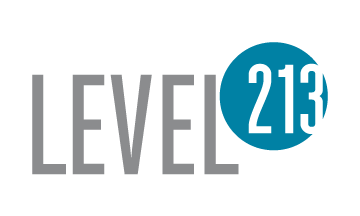The Essential Skills That Drive Revenue Success
At the heart of any successful Go-to-Market (GTM) Enablement strategy is a singular goal: empowering revenue teams to reach their full potential. A productive revenue-generating team is often measured by how consistently they meet or exceed quota. To hit those targets, sales professionals need a well-rounded set of skills that guide potential buyers seamlessly through their evaluation and buying process. These skills are just as critical for Customer Success teams who handle the renewal and expansion opportunities with existing customers.
Developing and maintaining these skills requires more than just a once-and- done effort. Attaining true effectiveness is an ongoing effort that requires careful planning, monitoring, and adaptation over time. As teams grow and shift, through new hires, experience and internal promotions, the skill levels within a team can vary widely. To keep the team performing at its peak, your job in GTM Enablement is to identify, train, and up-level these competencies on a regular basis.
Core Skills for Revenue Generating Teams
Regular skills training is critical, and here are the essential competencies that should be a cornerstone of any Enablement strategy:
Pipeline Management: Keep deals moving through the funnel efficiently.
Account/Territory Management: Strategically oversee and prioritize accounts or territories.
Prospecting/Cold Calling/Outreach: Uncover new opportunities and engage potential buyers.
Qualification: Ensure early on in the process that prospects are a good fit.
Discovery: Unearth the buyer’s needs, motivations, and pain points.
Relationship Building: Foster connections with potential and existing clients.
Stakeholder Mapping: Identify decision-makers and influencers within an organization.
Active Listening: Tune in to what the buyer says, both spoken and unspoken.
Communication: Convey ideas clearly and persuasively.
Value Selling/Value Demos: Demonstrate how your solution provides real value.
Executive Selling: Connect effectively with C-suite and other senior executives.
Executive QBR/EBR: Lead quarterly and executive business reviews with confidence.
Multithreading in an Organization: Engage with multiple stakeholders across an account.
Objection Handling: Navigate and address buyer concerns.
Negotiation: Secure favorable terms for both sides.
Forecasting: Predict and manage sales outcomes accurately.
Closing Techniques: Seal deals effectively.
Post-Sale Relationship Management: Maintain and strengthen client relationships.
Contract Renewals: Keep existing clients on board.
Identifying and Developing Upsell/Expansion Opportunities: Grow accounts through upsells and expansions.
Time Management: Tie daily activities to quota achievements and prioritize tasks.
Identifying Skill Gaps
To effectively support your teams, you must stay plugged into the organization’s needs. Pay attention to where reps are getting stuck in the sales cycle. Are deals stalling in certain stages? Are there specific points where deals are lost? Regularly evaluating pipeline data can offer clear signals on which skills need reinforcement.
Listening in on internal QBRs, team meetings, and customer calls is another way to identify gaps. Technology tools like Gong, Chorus, Otter, and Zoom make it easy to review what’s actually being said in meetings, and get a feel for the team's strengths and weaknesses. Don’t hesitate to connect directly with front-line managers—they're the ones closest to the action and often have the most accurate sense of where their teams could use support. They can also be one of your biggest allies to ensure adoption and reinforcement once training is rolled out.
Building a Robust Training Program
As you identify needs and develop training content, remember that resources don’t always have to be reinvented from scratch. By building a training library, you can address common skills gaps quickly and reduce the need for constant customization. You can also keep skills top-of-mind and create sustainable habits by leveraging reinforcement strategies and Milestone Learning Objectives (MLOs). These follow-up activities allow for the repetition and practice that turns training into everyday action.
Decide whether to build training in-house or use third-party experts. Many modern organizations strike a balance, outsourcing specialized skills training while keeping core competencies in-house. It’s all about what works best for your team’s unique needs and the budget constraints you are facing.
Staying Engaged
Revenue skills aren't static. As the market evolves and customer needs change, so will the skills required for your reps to succeed. Keep an open dialogue with both GTM leaders and sellers on the front line, and make adjustments as needed. Your proactive monitoring and focus on skill development will keep your revenue teams sharp, competitive, and consistently hitting targets.
Keep Your Teams at the Top of Their Game
Revenue-generating skills are the backbone of a successful GTM strategy. As the sales landscape shifts, staying ahead means continuously evaluating, training, and reinforcing the skills that matter most. By investing in these core competencies, you'll keep your revenue teams on track, helping them close deals faster, retain customers longer, and uncover new opportunities with confidence.
If you’re ready to take your revenue teams to the next level, check out our book, Accelerating Revenue - Your Definitive Guide to the Theory and Practice of Go-to-Market Enablement. It's packed with actionable insights and strategies to boost productivity and drive success. And if you'd like personalized support, reach out to engage our services for expert guidance on building a tailored Enablement program for your organization. Let’s make sure your teams have the skills they need to thrive!
Co-authored by Amanda Leikam and Roz Greenfield, Founders of Level213


